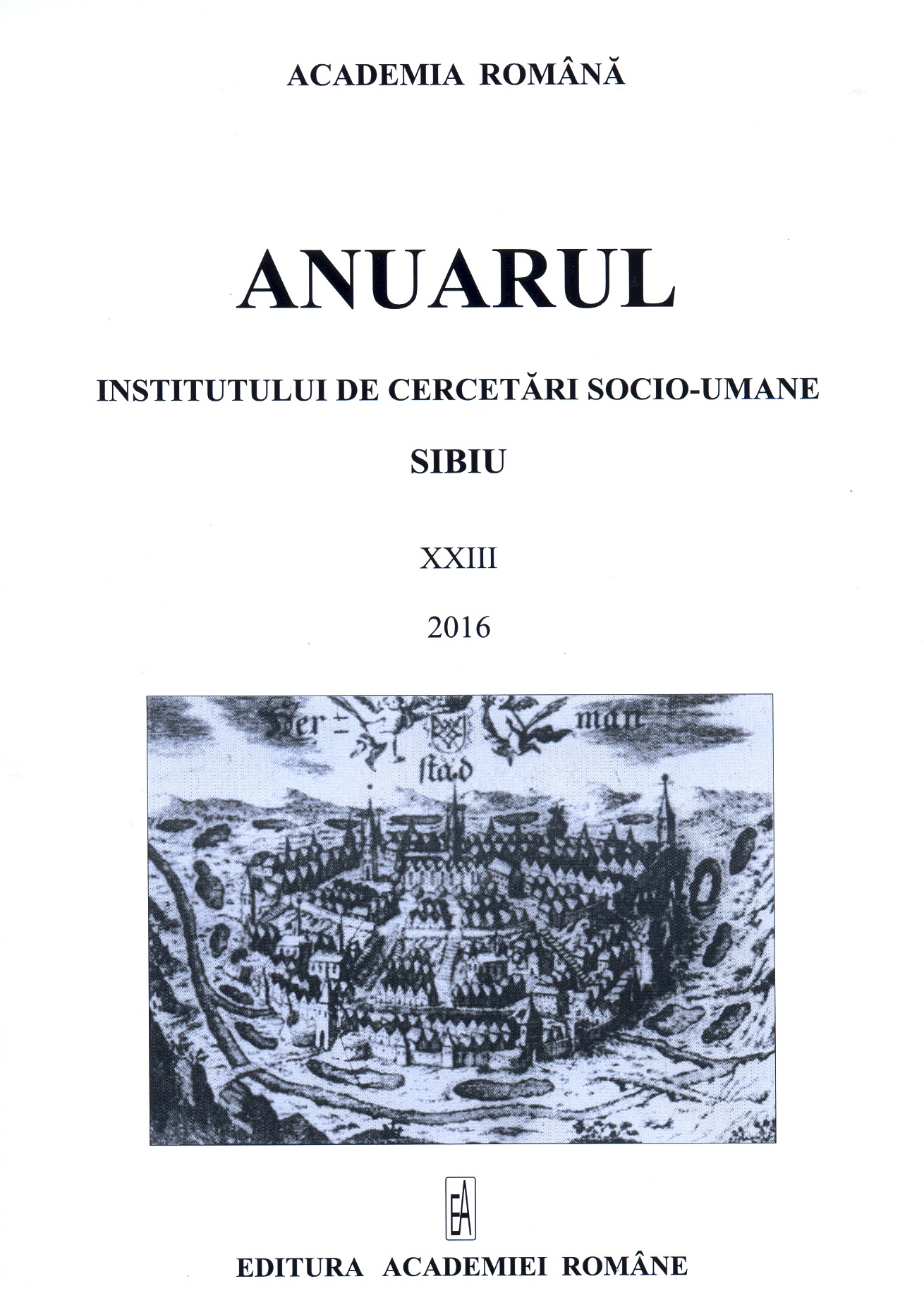Das Adjektiv „kauderwelsch“, die Verben „karteln“, „bud#lin“, „mutan“, „mut$r#n“ UND „taw#rn“ im Siebenbürgisch-Sächsischen
The Adjective „kauderwelsch”, the Verbs „karteln”, „bud#lin”, „mutan”, „mut$r#n” and „taw#rn” in the Transylvanian-Saxon Language
Author(s): Sigrid HaldenwangSubject(s): Syntax, Comparative Linguistics, Phraseology
Published by: Editura Academiei Române
Keywords: adjective; extended meaning; basic meaning; loan-word; Transylvanian-Saxon; verb; part of speech;
Summary/Abstract: When looking at the Transylvanian-Saxon vocabulary, it is found that certain parts of speech, for example adjectives, verbs, and nouns have a meaning in common with the German written and colloquial speech. However, there are extended meanings as well. As case examples we chose the adjective „kauderwelsch” and the verb „karteln”. Also included are verbs, the loan-words are „bud#lin”, „mutan”, „mut$r#n” and „taw#rn”, which initially have their common basic meaning and additionally show each one their own meaning. The latter lexeme is a loan-word, which is frequently used in the Transylvanian-Saxon colloquial speech. The case examples are taken from the Transylvanian-Saxon dictionary, the northern Transylvanian dictionary and vernacular literature.
Journal: Anuarul Institutului de Cercetări Socio-Umane Sibiu
- Issue Year: XXIII/2016
- Issue No: 23
- Page Range: 185-194
- Page Count: 10
- Language: German
- Content File-PDF

